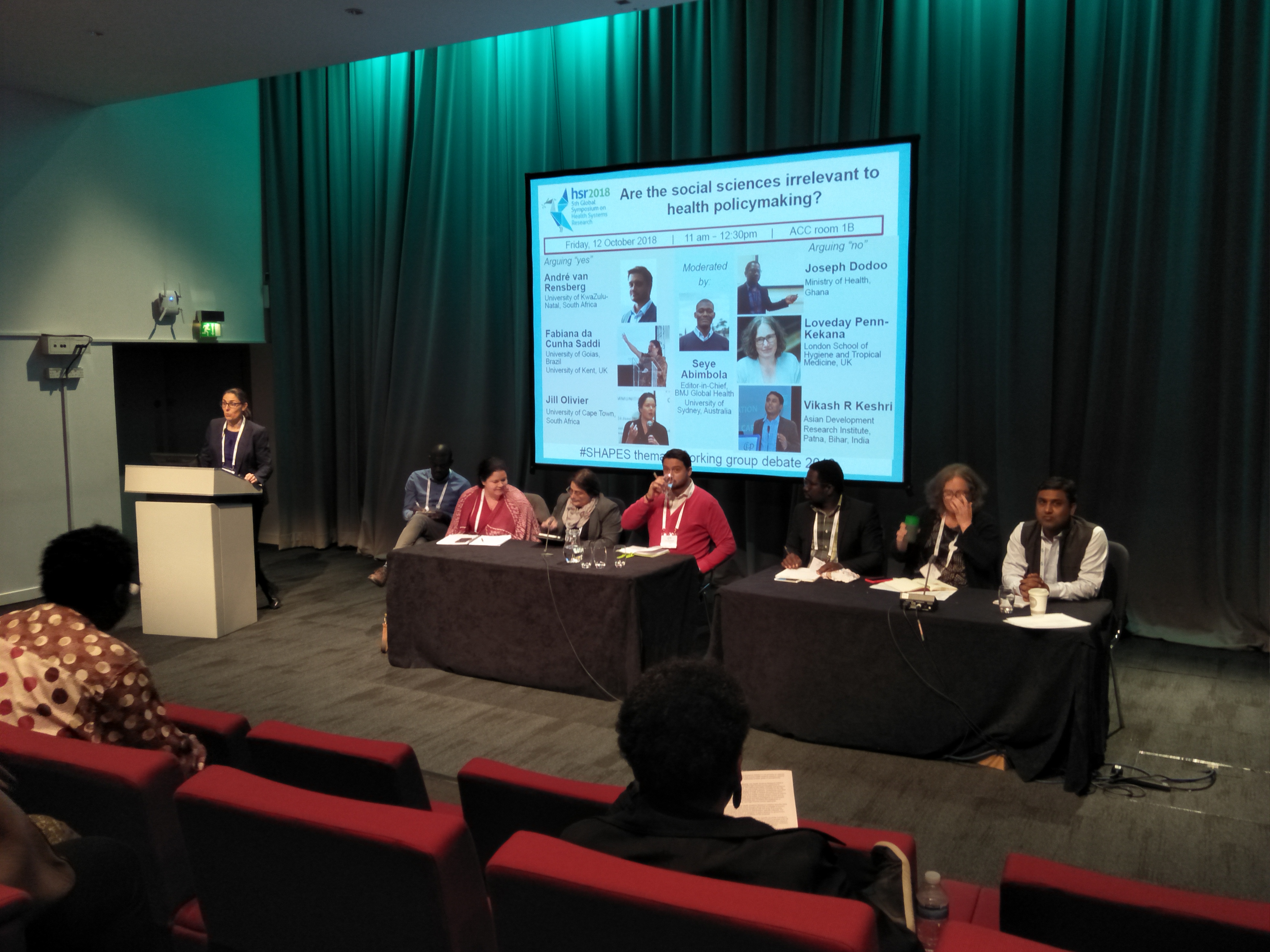08 Oct 2018
The Centre for Health Policy at 5th Global Symposium in Health Systems Research, Liverpool, 8 to 12 October 2018
Dr. Vikash R Keshri, Health Policy & Systems Specialist at the Centre for Health Policy (CHP), ADRI participated in theprestigious ‘5th Global Symposium on Health Systems Research’, held at Liverpool, UK in October 2018.
Dr. Vikash actively participated in the many activities in the conference. He Presented a research paper titled ‘Learning from Example: Motivating the Government to Reinforce Regulation of Private Health Sector in Resource Constrained Bihar Province of India’.
He also participated in a debate on ‘Is Social Sciences Irrelevant in Health Policy Making’organized by SHAPES (Social Science Approaches for Research and Engagement in Health Policy & Systems) thematic working group of Health Systems Global. In this debate researcher from 6 continent participated as debaters.
ABSTRACT :
Learning by Example: Motivating the Government to Reinforce Regulation of Private Health Sector in Resource Constrained Bihar Province of India
Purpose:
Bihar is one of the resource constrained state in India. Health systems in Bihar is mixed and complex. Majority of people access health care from private sector, although the cost is much higher. State government is trying to regulate private sector by bringing policies aimed mainly at administrative control and barely at market harnessing methods. First regulatory policy was enacted in year 2010 but couldn’t be implemented. Later, state government adopted the central act “The Clinical Establishment Act (CEA) in year 2013. But, no private health facility could be registered, hence they continue to be unregulated. We adopted case study approach to understand successful regulatory framework and make recommendations for Government of Bihar.
Focus/Contents:
Constitutional provisions in India mandates improvement in public health, nutritional status and right to life for all citizen as responsibility of government. Health issue is under the jurisdiction of state government. Due to unregulated proliferation of mixed health systems, high inequity in access and low quality of care is most important challenge. Many factors contribute to this challenge, these are; limited role of government as steward, insufficient institutional arrangements, lack of motivation, dominant role of doctors and professional associations in overall political economy. All other countries, where regulation is successful have robust institutions, which is decentralized. All other states of India, where regulation is successful used innovative approaches and harnessed technology to advance the implementation of legislations.
Based on this review, we recommended the possible approach towards larger stewardship role of government in Bihar. The approach can be: a). Government must continue to focus on strengthening public health systems and b). Government must start regulating private sector. Identified next steps were: Policy analysis of CEA, mapping of private sector in health care, engaging the stakeholders, and policy mapping to explore options to constructively engage private sector.
Significance for sub-theme area /field building dimensions:
We adopted this unique strategy for motivating and developing capacity of local government for ensuring effective regulation. Co-planning with state level policy makers was done by round of meetings to identify steps for future research and policy action. Co-designing of research focus with policy makers turned out to be suitable health policy and systems research approach for complex issues.
Target audience:
Target audience for this study was department of health in state of Bihar. Approach to build stewardship capacity can be replicated in other similar setting.
Poster
